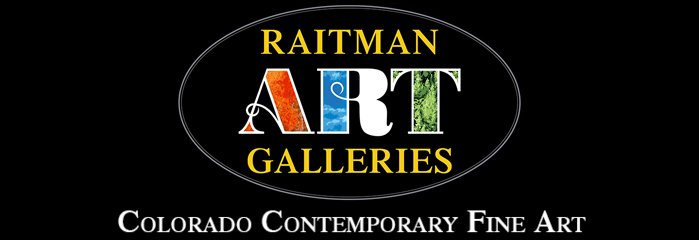Rolinda Stotts Artist Review
History
Aesthetics
Principals of Art:
Space: Space is demonstrated to create dimension in the composition. A shift in size, details and color value all serve to create depth in Rolinda’s landscapes. You can see clearly in Skip in My Step how the flowers in the foreground are far more detailed and brightly colored than the mountains in the background. This helps move the foreground closer and push the background further away, creating space in the composition.
Color: Rolinda works playfully with color to add bright pops of vibrant color against softened pastels. Colors help covey a feeling of happiness and joy in her paintings and remind the viewer of the pleasures of time spent outside.
Shape: Organic shapes dominate Rolinda’s paintings. Her shape use rejects rigidity and orderliness and instead favors spontaneity and freedom. General shapes such as the vertical trees against the diagonal sloping shape of the hillside prompt the eye to move around the composition.
Form: Circle is to shape as sphere is to form. Changing values adds form to the shapes in Rolinda’s paintings. In Skip in My Step the mountains transform into three dimensional forms due to the shadows and highlights that recreate a mountains natural dimension.
Value: Value relates to the tint/shade of a hue (color). Every color can be tinted by adding white or shaded by adding black. The purpose of considering value in a painting is to help create both dimension and a mood to a painting. Value use is important to create depth in a landscape. You can see how the values in the foreground of Skip in My Step are much stronger than those in the background and how the difference creates visual space.
Texture: Rolinda’s paintings are textured with cracks that characterize her unique medium. These cracks which the viewer can both see and feel create texture that is tangible and real. Rolinda created her medium with the intention of it being safe for her viewers to touch and interact with the painting. She encourages her viewers to reach out and feel this created texture, not just observe it.
Principals of Design:
Balance: Rolinda balances her compositions with shifts in details, proportions and the visual space each portion occupies. In Skip in My Step she balances the large mountains of the background with detailed flowers in the foreground. The tall pine trees on the left counterbalance the sloping hillside of the right.
Unity: The unity of a piece is what creates a sense of completeness. The cracked surfaces of Rolinda’s paintings unifies the composition in it’s overall appearance. There is also unity created with the free brushstrokes and bright colors that Rolinda favors while creating.
Variety: Variety is what adds interest into a work of art. An ever changing landscape offers Rolinda opportunities to highlight the natural varieties in nature. Compositionally the changes in directionality create the largest sense of variety in Skip in My Step.
Emphasis: Emphasis is what the artist uses to create a focal point. Focal points can vary viewer to viewer, but a truly successful composition will have one clear focal point that the eye is continually drawn to over and over again. Rolinda’s landscapes leave room for viewer interpretation as to what their eye favors. In Skip in My Step the eye loves the details in the flowers, but also returns to the distant mountains due to their majesty.
Movement: Movement implies motion is a snapshot of time. The clouds in Skip in My Step add a subtle and almost unnoticed cue of movement on this still summer day in Skip in My Step.

A Little Slice of Bliss
Rolinda Stotts
Pattern: Think of pattern as the visual skeleton that organizes the parts of a composition. This underlying structure uses consistent and regular repetition. You can have both natural and man made pattern. Repeating vertical lines of the pine trees create a visual pattern for the eye and act as a natural transition between the foreground and background.
Perspective: Perspective is what creates a three dimensional painting vs a two dimensional painting. You can see atmospheric perspective clearly in Skip in My Step in how the mountain colors have been subdued and muted as they would in nature. In opposition, the brightly colored and highly detailed flowers of the foreground feel close. This change value builds perspective and creates depth in the painting.
Production
To find her own way of showing time in her paintings, Rolinda took inspiration from Italian Frescos and created her own medium. Time, patience and ingenuity lead her to a new way of painting all together. This new medium she dubbed “Bella Rotta” which translates to “Beautifully Broken” in Italian. There is beauty in imperfection, which is what Rolinda’s painting remind the viewer as they touch and view her work.
The complex ten step process of Bella Rotta begins with Rolinda making her own wooden panel canvases that she can tailor to any size she wishes. She will often create her composition on multiple panels that all work together. Since Rolinda invented this medium, much of the in between is a secret for her alone to know.
What she creates however is a strong durable surface on the wooden panels that can be broken by her and cracked to reflect the passage of time. She paints on top with oils, and once dry she breaks her painting again. The physical cracks are real, but do not compromise the piece’s strength in anyway.
This unique and innovated artistic medium sets Rolinda apart from all other artists and makes her work instantly recognizable as her own.




